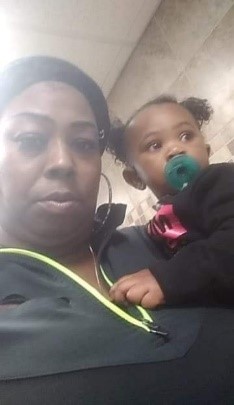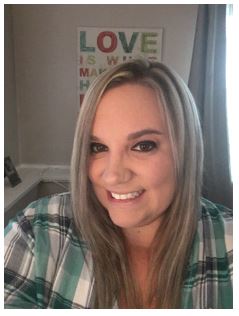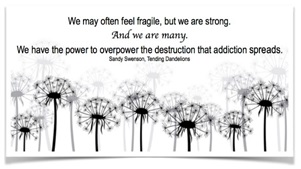"From Shame to Shine"
 Aishia Ratliff was born in New Haven to a loving mother who did her best to provide and keep a roof over the family’s head. Yet, this 39-year-old mother faced a lifetime of struggle.
Aishia Ratliff was born in New Haven to a loving mother who did her best to provide and keep a roof over the family’s head. Yet, this 39-year-old mother faced a lifetime of struggle.
At age five, she experienced significant trauma and child maltreatment. That was also the year her father abandoned her. At 12, she was smoking marijuana. Alcohol dulled her pain from the age of 14. In her early 20's, it was ecstasy. Then at age 25, crack cocaine and heroin became her solace.
Along the way, she gave birth when she was 19 to her son, Shy'lon, whom she handed over to her own mother to raise from age four until he turned 18. In 2009, she was sentenced to prison flowing from a robbery fueled by her need to fund her habits.
Everything Has Been A Struggle
"Everything has been a struggle for me," Ms. Ratliff said.
After release in 2012, she stayed clean until 2014. She worked as a certified nurse assistant at Yale New Haven Hospital and elsewhere. Things then went bad again in 2014 when a family dispute led her to become homeless.
"I was living on the street with my pit bull," Ms. Ratliff remembered. She said she used New Haven city services to survive, including homeless shelters and the library for sanctuary.
"That's when I relapsed," she said. She would stay at "friends" but most of the time lived on the streets. "I carried a bag with three days of clothes in it," she said.
She caught a break in 2016 when the homeless shelter obtained a voucher for her to get an apartment. She turned to faith in God to stay clean for a year, and then she relapsed on crack. She attributes the long affair with substances to depression, anxiety and mental illness. Looking back on her decades of substance use, she said, "Drugs were my first love. It was something I could depend on and be in my comfort zone."
 Another Turn
Another Turn
In 2018, things took another turn. She was riding in a car driven by a man who was high on drugs, and an accident resulted. "It was a guy who I got high with," she said. She went to the hospital with a back injury, and she learned something that would change the rest of her life.
"I was shocked," she said. "They told me I was seven months pregnant."
That jolt led Ms. Ratliff to seek help getting off crack. On her own initiative, she found a program called Amethyst House, which provides treatment to women who live at the program with their children.
A month after moving to Amethyst House, she gave birth to Heavyn Royalty Sunchild Lopez in September 2018. The Department of Children and Families (DCF) responded to a report of suspected maltreatment at that point.
It wasn't a welcome introduction."I didn't want you at all," she said of DCF's entering her life. "I was hoping the bad dream of you guys would go away."
Unwanted -- But A Chance At Renewal
But it created a chance at renewal.
"Now I had to clean myself because I wasn't going to have a crack-addicted baby," she said. "I had to love someone more than my addiction."
She also needed someone in her corner.
 Enter Courtney White, a DCF social worker with only two years on the job back then.The treatment social worker, assigned to a specialized "high-risk newborn" unit in the New Haven office, said her work with Ms. Ratliff has been based on honesty, respect and trust.
Enter Courtney White, a DCF social worker with only two years on the job back then.The treatment social worker, assigned to a specialized "high-risk newborn" unit in the New Haven office, said her work with Ms. Ratliff has been based on honesty, respect and trust.
"I laid it all out for her," Ms. White recalled. "I explained how it was going to go, and I let her know that we are in this together. I said, 'I can't do the work for you, but I can do it with you.'"
She left Amethyst House in October 2018, and she returned to her New Haven apartment. Less than a year later, in June 2019, she relapsed on crack again.
Relapse Is Part Of The Recovery Process
Ms. White said Ms. Ratliff relapsed on Father's Day weekend.
"With recovery from addiction, sometimes comes relapse," said Ms. White. "I told her that it doesn't mean Heavyn will be removed."
With the understanding that relapse is part of the recovery process, Ms. White helped Ms. Ratliff enter an in-home intensive substance use treatment program called Family Based Recovery (FBR) that sends a team to the home several times a week to provide both clinical and case management services.
Ms. Ratliff said, "It worked for a while and then I hit a glitch." She relapsed in August.
At that point, Ms. Ratliff said the Department gave her a choice. "I had the option to either give up my child or go to rehab with her," she said.
A meeting (known as a "considered removal" meeting) was held in August 2019 to see if a removal could be safely avoided. "She was presented the option of going to rehab with the baby or the Department would file" a petition to place Heavyn in foster care, said Ms. White.
That fork led Ms. Ratliff to see if they could find another residential treatment program that would allow Heavyn to remain with her. Ms. White and Ms. Ratliff began making phone calls. "We called every single program that would allow that," Ms. White said.
I Trust You Will Make the Right Decision
But Ms. Ratliff was struggling with the decision. "She laid on the floor and cried and cried," said the social worker. "That was a turning point for her. She was on the phone with me throughout the night. I told her, 'you are a good mom and I trust you will make the right decision.'"
Indeed, she did.
She decided to take an opening at another residential substance use treatment program called Mother's Retreat in Groton. The morning Ms. Ratliff was scheduled to enter the program, Ms. White went to go get her and Heavyn and bring them to Groton.
Arriving at 7:30 a.m., it soon became evident that Ms. Ratliff was reluctant. Ms. White reassured the mother that she would bring her son to visit her and Heavyn in Groton. Ms. White also got permission from her supervisor to go with Ms. Ratliff to buy some necessities at a store across the street from the Groton facility. Ms. White stayed with Ms. Ratliff throughout the intake process. "I wanted her to feel that she was not alone," Ms. White remembered.
The program clicked for the mother. "She thrived in the program, and the staff raved about her," said Ms. White. "She was great with Heaven. She was a role model there. She did so well in that environment."
Ms. Ratliff completed the full 90-day program and was successfully discharged in December 2019. She returned to her apartment to live with Heavyn and Shy'lon. Mother's Retreat helped her enter an intensive outpatient program offered by the Connection, which she also successfully completed, said Ms. White.
Ms. Ratliff has stayed away from substances since then.
I Want It This Time
"I want it this time," she said. "I was very motivated to keep Heavyn. I'm tired of chasing my drugs and being a captive of my addiction."
"I've been clean a year now and it feels good," she said. "I'm not considering it an accomplishment yet. I try to take one step up the ladder at a time. For me, it's not a day at a time. It's one second at a time."
Ms. White said Ms. Ratliff needed acceptance and support, and that the pair had built the trust necessary to take the path of keeping the family together despite the obvious risks.
 "She was looking for that acceptance, reassurance and confidence that she could be a parent," Ms. White said. "She had the insight and the ability to reflect on her own challenges, struggles and goals. She admitted her mistakes and told me that she trusted that if I said the program is going to work, then I trust that.
"She was looking for that acceptance, reassurance and confidence that she could be a parent," Ms. White said. "She had the insight and the ability to reflect on her own challenges, struggles and goals. She admitted her mistakes and told me that she trusted that if I said the program is going to work, then I trust that.
A Mutual Trust
"I had her buy in," Ms. White added. "She knew I shared her goals for Heavyn to have a safe and enriching childhood. She wanted that, and I wanted that, and it just became how are we going to make that happen. It was a mutual trust, but she had to do her part, and she was able to do that."
Ms. Ratliff lavishes praise on the social worker in return.
"Courtney is wonderful, and I could not have done it without her," said Ms. Ratliff. But that doesn't mean Ms. White sheltered her from reality. "Courtney didn’t beat around the bush - if I was on two strikes, she let me know," said the mother. "She walked me all the way through and told me we can get through this."
The two developed a bond and a relationship.
"Me and Courtney would talk all day - she went beyond her job to make sure I would stay on the right track," said Ms. Ratliff.
Ms. White would visit Ms. Ratliff often at the program in Groton. "She was very supportive," Ms. Ratliff said. "She made sure I was comfortable, and she coached me. I cannot explain how understanding she was. She was very sympathetic."
Ms. White had a very clear insight into who mother was and what challenges stood in the way.
"She had extensive childhood trauma," said Ms. White. "I did what I could to meet her where she was at. But she put in all the work -- she's the one who did it."
Looking back, Ms. White expressed satisfaction with her work with this mom that resulted in an intact family."She was a challenge, but a treat to work with," said Ms. White. "I could cry happy tears for her. It was very emotional and rewarding."
Heavyn Is Thriving
Heavyn is thriving. Her mother describes her as "intelligent, classy and understanding. Everything about her is so cute - the way she wants to cuddle."Ms. Ratliff said, "It is a blessing to wake up with both my kids. God has surely been good to me. He's been better than I have been to myself."
She said recovering from substance use means changing the situations of your life, but it also means more than that. "You have to change the people, places and things, but if I've not changed within me, I haven't done anything at all."
Ms. White said Ms. Ratliff needed someone to believe in her so that she could believe in herself. "She needed that confidence that someone believed in her," Ms. White said. "She is a prime example of why we do this work. It's to tackle struggles and to move forward. Work through the lows and celebrate the highs."
Ms. Ratliff is very clear that her recovery and success was a team effort with Ms. White.
Ms. White recalls that Aishia was very patient with the process and kept reassuring her that she was focused on taking care of Heavyn and maintaining her sobriety.
The date of 11/13/20 will forever be one Ms. Ratliff remembers. It was on this date that Ms. White called Ms. Ratliff to tell her the case was successfully closed. "She was reduced to tears, started thanking me over and over again and said, “God is good, according to Ms. White.” I said, “Congratulations Aishia! All your hard work has paid off! You did it!!!!” And through her tears she said, “no, we did it!” I wished her and her family the best and reminded her to keep moving forward."
Ms. Ratliff was equally clear about why she wanted to tell her story.
"Whatever I can do to help another mother bring her child home, I'm willing to do that," she said.

